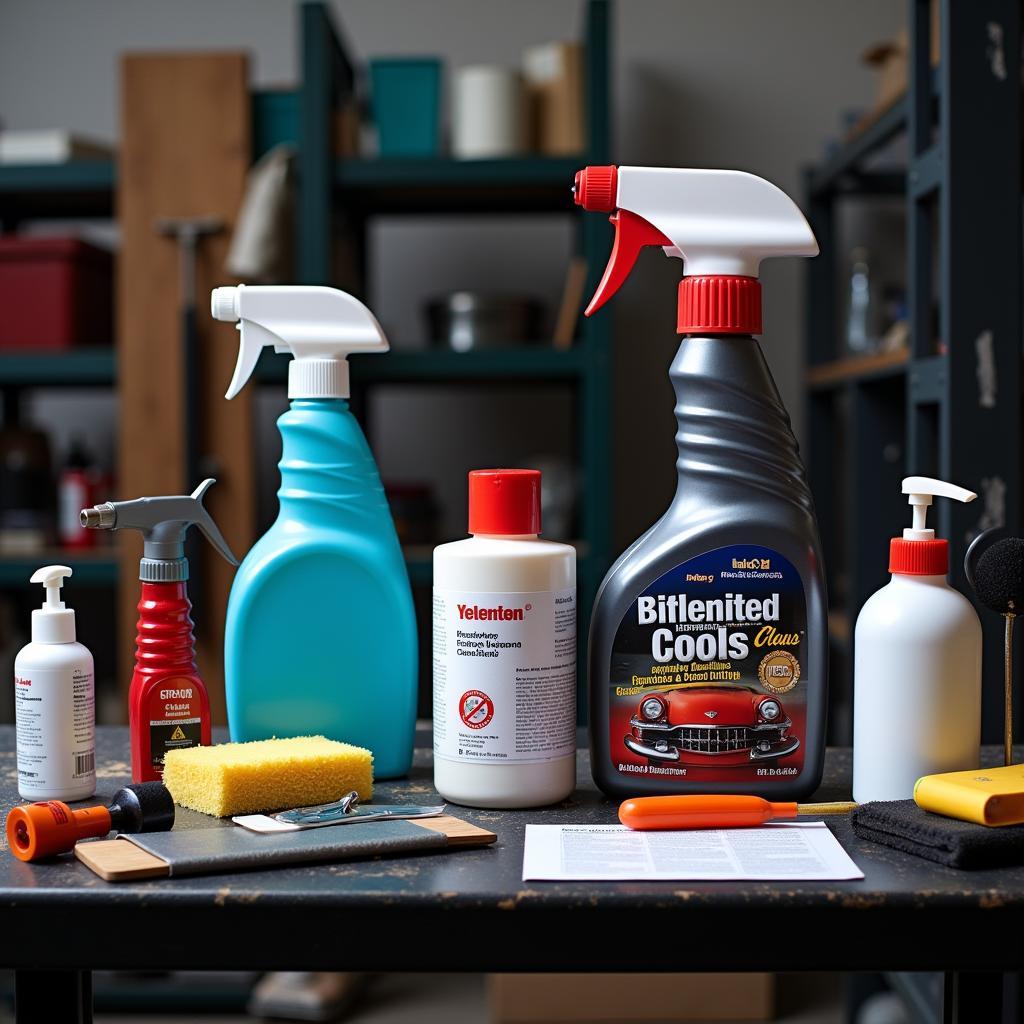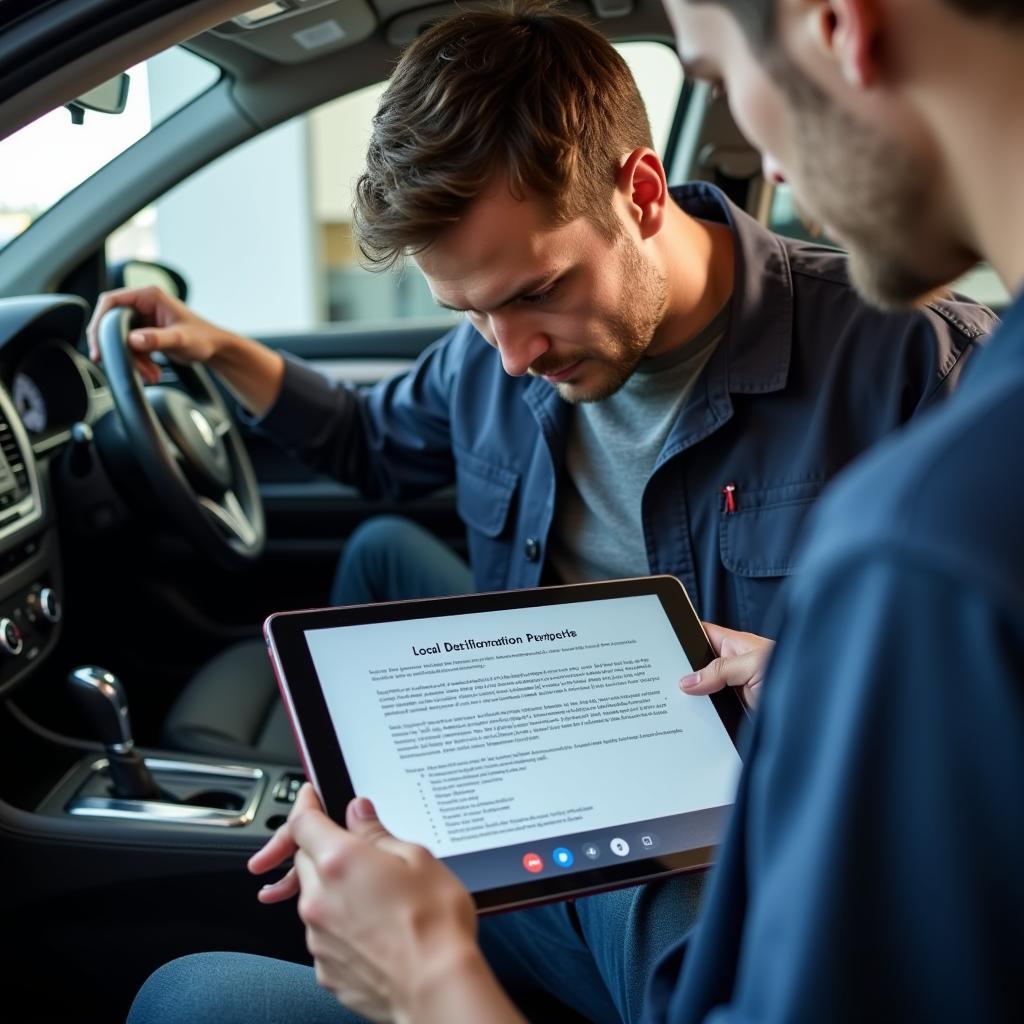So, you’re ready to transform grimy cars into gleaming masterpieces and thinking, “Do I need a license to detail a car?” It’s a great question and one we’ll answer thoroughly in this comprehensive guide.
The world of car detailing might seem straightforward, but there can be legal nuances depending on your location and the services you offer. Let’s dive into the specifics and shed light on whether you need a license to detail cars professionally.
Do You Need a License to Detail Cars?
The short answer is: it depends. Unlike professions like electricians or plumbers, there isn’t a universal “car detailer” license. However, certain aspects of car detailing might require specific licenses or permits depending on your local laws and the specific services you provide.
What Triggers Licensing Requirements in Car Detailing?
While a general car detailing license might not exist, here are specific services that often attract licensing requirements:
1. Business Operation and Taxes
- Business License: In most places, operating any business, including a car detailing service, requires a general business license. This helps your local government track businesses and collect taxes.
- Tax Identification Number (TIN): If you’re operating as a company or have employees, you’ll likely need a TIN to file taxes properly.
2. Handling Hazardous Materials
- Environmental Regulations: Detailing often involves chemicals that could be harmful if released into the environment. Many regions have regulations governing the use, storage, and disposal of such chemicals, which might require special permits.
3. Water Usage and Disposal
- Wastewater Discharge Permits: Some car detailing processes involve using significant amounts of water. Depending on your location and how you dispose of wastewater, you might need a permit to ensure it doesn’t contaminate the environment.
4. Specific Detailing Services
- Paint Correction: Services like paint correction, which involve sanding and buffing, can fall under regulations similar to those for auto body repair shops.
- Window Tinting: Applying window tint often requires a specific license, as there are regulations concerning the permissible darkness of the tint.
 Car Detailing Chemicals and Equipment
Car Detailing Chemicals and Equipment
How to Find Out the Specific Requirements in Your Area
Navigating the legal side of car detailing doesn’t need to be overwhelming. Here’s a simple approach:
- Contact Your Local Authorities: Reach out to your city or county clerk’s office. They can guide you on specific licenses and permits needed in your area.
- Consult the Small Business Administration (SBA): The SBA provides resources and assistance to small business owners, including information on licensing and regulations.
- Seek Legal Advice: If you’re unsure about anything, it’s always a good idea to consult with a lawyer specializing in business law.
Benefits of Being Licensed and Compliant
While obtaining the necessary licenses might seem like an extra hoop to jump through, it offers significant advantages:
- Credibility and Trust: Being licensed shows potential customers that you’re a legitimate and trustworthy business.
- Competitive Edge: In a competitive market, being fully licensed can set you apart from those operating without proper authorization.
- Peace of Mind: Operating legally protects you from potential legal issues and ensures you’re running your business responsibly.
Navigating the Legal Landscape of Car Detailing
 Car Detailer Consulting Local Regulations
Car Detailer Consulting Local Regulations
“When I started my detailing business,” says Sarah Jones, owner of Pristine Auto Detailing, “I was meticulous about obtaining all the required licenses and permits. It gave me peace of mind knowing I was operating above board, and it definitely resonated with my customers, who appreciated my professionalism and commitment to doing things the right way.”
Remember, laws and regulations can change, so it’s crucial to stay updated and comply with any new requirements.
Conclusion
While a universal “car detailing license” doesn’t exist, specific aspects of car detailing might require licenses or permits based on your location and the services offered.
By contacting your local authorities, the Small Business Administration, or a legal professional, you can ensure your car detailing business is fully compliant and operating legally. This not only protects you but also enhances your credibility, giving your customers confidence in your professionalism.
FAQs About Car Detailing Licenses
1. What happens if I detail cars without the required licenses?
Operating without the necessary licenses can lead to fines, penalties, and even legal action. It’s essential to prioritize compliance to avoid these consequences.
2. Do I need a license to detail cars at a client’s location?
Even if you’re mobile, you still need to comply with all licensing requirements for operating a business and handling potentially hazardous materials.
3. Is there an exam to get a car detailing license?
While there isn’t a universal car detailing exam, you might need to pass specific exams or demonstrate proficiency for services like window tinting or paint correction.
4. How much does it cost to get licensed for car detailing?
The cost varies depending on your location and the specific licenses required. Contact your local authorities for accurate fee information.
5. How long does it take to get a car detailing license?
Processing times for licenses and permits differ. It’s best to apply early and inquire about estimated processing times to avoid delays.
Need Help with Your Car Diagnostic Needs?
Contact CarDetailingUK today! We are available 24/7 via WhatsApp: +1(641)206-8880, or email us at: [email protected]. Our team is ready and happy to answer your questions.

Leave a Reply